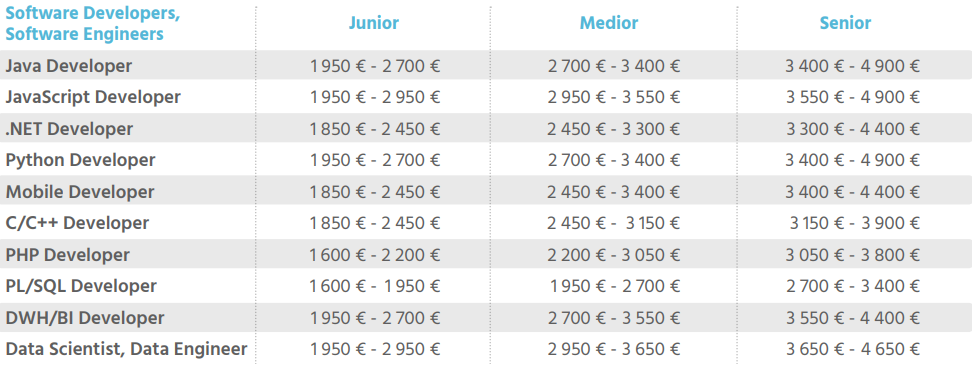Junior programmers face many challenges so we thought we would and provide practical solutions to help you overcome them, in case you are one starting your journey.
More...
As a junior developer, you must navigate the coding world, deal with errors, and learn new languages. But, hey, that's just the tip of the iceberg. You'll also confront a slew of trials in this game that could make or destroy your career.
Don't worry; we've been there. We’ve experienced similar challenges and triumphed over them. And now...we’ll share our knowledge with you.
We'll look at the most common issues that junior software developers experience, and we'll offer real ways to help you overcome them. By the end of this piece, you'll be prepared to face any challenge that comes your way.
So, let's dive in, shall we?

Technical Skills
One of the most difficult problems for novice programmers is keeping their technical skills current. It can be challenging to keep up with new technologies that emerge on a daily basis. But don't worry, there are solutions to this problem.
First and foremost, it is critical to always learn and improve your talents. Take online courses, attend workshops, and participate in hackathons to do this:
Online courses
Workshops and hackathons
This will not only keep your abilities up to date, but it will also allow you to network with and learn from expert programmers.
Working on own projects is another approach to improve your technical skills. This will allow you to experiment with new technologies and gain hands-on experience.
You can also participate in open-source projects, which will allow you to work on real-world problems while simultaneously making a beneficial impact on the programming community.
Open-source projects
Finally, keep up to date with the latest tools and technology. Subscribe to programming-related blogs, podcasts, and newsletters, and follow industry luminaries on social media.
Programming-related blogs, podcasts, and newsletters and Industry luminaries
Communication Skills
Effective communication is essential for junior software developers, both inside teams and with stakeholders. For those who are just starting out, this can be difficult, but with the correct abilities, you can overcome it.
To improve your communication abilities, you must first identify your audience and then personalize your message to them. When talking with stakeholders, keep the business value of your work in mind and express it in clear English.
Be precise and concise when communicating with your team, and ensure that everyone is on the same page.
Practice, practice, practice is another approach to develop your speaking skills. The more you practice, whether it's making presentations, developing code, or debating technical topics, the better you'll get.
Don't be shy about soliciting input. Request constructive criticism from your team and concentrate on fixing your flaws. This will aid your development as a programmer and communicator.
Time Management
For junior software developers, successfully managing time and priorities is critical. It's easy to become overwhelmed with so many jobs and responsibilities. However, with a little planning and discipline, you can overcome this obstacle.
Begin by making a to-do list and ranking your chores according to their significance and deadline. Make time for breaks as well, as this will help you stay focused and avoid burnout.
Another strategy to efficiently manage your time is to remove distractions. Turn off your phone's notifications, close your email, and concentrate on one job at a time. This will allow you to stay focused and do more tasks in less time.
Lastly, don't be scared to delegate responsibilities. If you have a tight deadline, go out to your team to see if anyone can assist you. This will not only assist you in completing your chores, but it will also promote collaboration and teamwork within your team.

Watch out for things like...Debugging
Debugging is an unavoidable component of the programming process, although it can be difficult for inexperienced programmers. However, with the correct tools and tactics, debugging can be a snap.
Begin by utilizing the proper tools. Learn about debugging tools and techniques include print statements, the debugger, and logging. These tools will help you locate and repair errors faster and more efficiently.
Another strategy for overcoming the debugging difficulty is to think like a detective. Approach debugging as a problem to be solved, and adopt a systematic approach to determine the root cause.
Finally, don't be hesitant to seek assistance. If you're stuck, call out to your team or coworkers for help. This will not only help you find a solution more quickly, but it will also allow you to learn from others.
Choosing the Right Programming Language
Junior developers may find it challenging to know where to begin with so many programming languages to pick from. But don't worry, there are simpler programming languages you can learn to get started.
Python, Ruby, and JavaScript are among the most simple programming languages to learn. These languages have a low learning curve and a wide user base, making it easier to access assistance and information.

When selecting a programming language, keep your goals and the types of projects you wish to work on in mind. If you're interested in web development, for example, JavaScript may be the ideal option. Python might be a better option if you're interested in data analysis.
Need more motivation? Look at some salary options:
We breakdown what you deserve as a junior developer!
Here is a teaser for you:

Keep up the good work!
To summarize, being a junior developer can be a difficult path, but with the correct skills and mindset, you can conquer any hurdle that arises. Learn and improve your abilities on a regular basis, communicate effectively, manage your time and priorities, and select the best programming language for you.
You'll be well on your way to becoming a successful programmer if you follow these tips and tactics.
We hope you found the above informative. If you have any questions or comments let us know!
Remember that a thousand lines of code begins with a single step.
